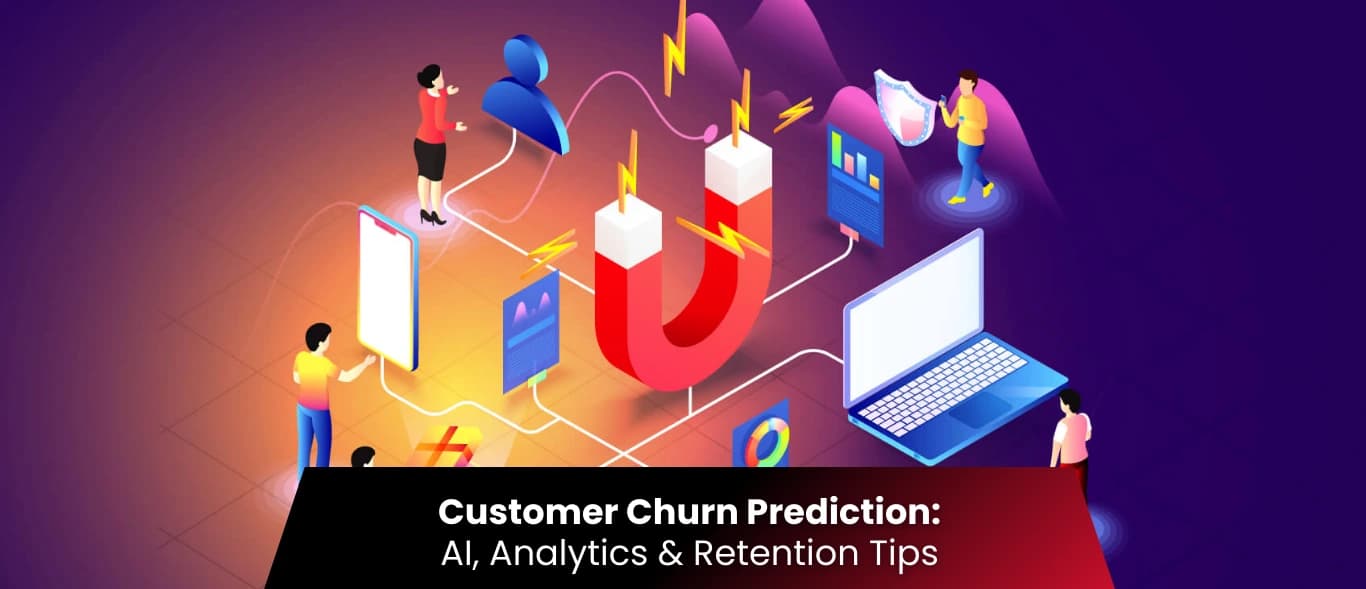Although the retail sector has experienced instabilities in recent years, it has showcased a promising future, considering the rapid development in the domain of generative AI.
Artificial intelligence applications have recently become a staple of this transformation from personalized recommendations to demand forecasting.
The most significant breakthrough related to generative AI services has been in uncovering the future of AI at large.
As per McKinsey's 2023 report, there has been an increase in the adoption of AI in retail.
Approximately 70% of retailers reported having already applied for or planned to implement AI in their daily operations.
That's a 40% increase from 2020, showing how fast AI-driven solutions, including generative AI, are being adopted in retail.
It changes the retail landscape by lessening human effort toward automation and efficiency. Still, it also opens new avenues for businesses, from product designing and marketing to managing the supply chain and interacting with customers.
What is Meant by Generative AI?
Generative AI is AI that can produce original results via text, images, music, and product designs using the patterns it has learned from the data it was trained on.
It is very different from traditional AI, which is primarily data analysis or the completion of tasks predefined by humans.
The notable examples contain OpenAI's GPT and the models that generate pictures, such as DALL·E.
This now opens a new avenue for the type of potential shift that might be in store with dramatic shifts in business processes to advance the areas involved in retail.
Whether dynamic pricing models or highly personalized customer experiences, generative AI brings something new into creativity and store operations.
Enhancing Product Design and Customization
The fashion and consumer products industries diverge here. With generative AI, brands can modify how products are designed.
In a 2022 survey by PwC, 52% of retail executives believe AI and ML will significantly impact their industry within the next three years.
This would mostly be through product recommendations, demand forecasting, and pricing models.
Accelerated Product Development
Generative AI can accelerate exploratory research and prototype sketching in traditional product design by evaluating market trends, scanning customer preferences, and competitors' offerings.
This allows retailers to show something fruitful, as the differences between design ideas are more profound in market awareness.
This is very useful in the fashion industry, where things change fast, so staying ahead of the curve is essential.
Personalized Product Personalization
Meeting the demand for something unique and customized, Generative AI provides retailers with this need.
With previous purchase records and styles, AI models can create custom-made product designs and recommendations that make customers buy from them.
For example, Nike implemented an AI system for designing shoes, allowing customized designs that accommodate people's preferences.
The resultant shoe is specific only to that particular user's preference. Such a product would, therefore, command high loyalty among customers, high satisfaction levels, and a propensity for repeated purchases.
Optimizing Marketing Strategies
Forbes wrote that generative AI is already being used by 68% of retail marketing leaders to create content.
This starts from personalized ad campaigns to product descriptions and social media posts.
Automation has shrunk the time this takes to create content for most retailers between 30-50%.
This has dramatically changed with the advent of data in retail for understanding customer behavior and further improving targeted campaign creation.
Generative AI has taken this one step forward, allowing retailers to automate and maximize content generation, ad targeting, and customer engagement.
Automated Content Creation
The most challenging part of marketing can be creating content for product descriptions, blog posts, or social media messages.
You can develop SEO-friendly and quality content that matches the core audience with generative AI.
E-commerce brands can generate customized product descriptions of thousands of SKUs within minutes.
This leads to providing customers with better and more relevant information about the products they desire; concurrently, shops rank better for such related searches.
According to HubSpot data, retailers that have used AI-powered marketing automation, such as dynamic ad generation, have witnessed increases of up to 20% in CTR and as much as 15% in conversions.
AI processing extensive data on behalf of customers creates tremendous permutations that empower retailers to create hyper-personalized marketing campaigns.
Here, the idea is not that AI works on mundane demographic data; instead, it considers individual customer behaviors and preferences in purchasing history to deliver customized advertisements and promotional offers.
Real-Time Customer Interaction
Almost all of these chatbots and virtual assistants compiled through Generative AI have been turned upside down in how retailers interact with real-time customers.
With such NLP capabilities, AI systems can now understand the context and respond in almost human-like ways.
As outlined by LexisNexis Risk Solutions, fraud detection through AI-powered systems, generally applied in retailing, has reduced fraudulent transactions by about 40-50%.
Revolutionizing Supply Chain and Inventory Management
Maintaining profitability and satisfied customers are two of the most critical responsibilities for a retail business, and this is at the crux of good supply chain management.
A sound Generative AI approach transforms the management of a supply chain and inventory through intelligent real-time forecasting and adjustment.
Demand Prediction and Inventory Optimization
Retailers have always attempted to manage their supply and demand, but problems such as overstocking and stockouts have thwarted them.
Generative AI can inspect previous sales data records, seasonal shifts, or economic trends to predict upcoming demand with unusual accuracy.
Based on a 2022 Deloitte study, the AI-driven inventory management system reduces overstocking by 30% and stockouts by 60%.
Retailers applying AI to demand forecasting and inventory optimization show an inventory cost reduction between 18 and 22%.
GenAI models can inspect large quantities of data to identify sales, market movements, and customer tastes and make wise predictions of demand in the coming days.
This permits retailers to filter the inventory volumes so they have appropriate products at the correct phases of inventory at the right time.
For instance, the global fashion retailer Zara uses AI-based tools to avoid predicting the correct number of preferred styles and sizes at specific stores.
Then it can fine-tune production and distribution to reduce unnecessary overproduction and empty stocks.
It applies AI-driven tools for demand prediction and distribution optimization, which makes it 40% faster in turnover than any other company with significant quantities of excess stock reduction.
Dynamic Pricing Models
It is also transforming the nature of pricing using generative AI.
AI systems continue to pass through market trends, competitor prices, and customer behavior, and can thereby come up with dynamic pricing models that optimize revenue while staying competitive.
The dynamic pricing algorithm is mainly designed to determine and adjust prices in real time, using predictions from the pricing model and implementing predefined business rules.
These AI-enabled systems combine modern data integration technologies, organizing and inspecting ample data from customer communications, and the recent market trends.
Improving Customer Experience and Engagement
Customer experience (CX) is at the heart of retail success, and Generative AI is transforming how retailers engage with customers at every touchpoint.
Enhanced Shopping Experiences Through Augmented Reality (AR)
Sephora has seen a 15% increase in online sales after introducing AR-based virtual try-ons powered by AI, allowing customers to visualize how makeup products look before purchasing.
Generative AI, combined with AR, is innovating in-store and online experiences.
With the development of technology, the combination of AI with AR will produce a customized shopping experience.
IBM Watson reports that AI-enabled virtual assistants and chatbots reduced wait time for customer service at retail by 70%, translating into a 25% jump in customer satisfaction.
For example, a cosmetic firm such as Sephora uses AR applications to enable customers to "try on" some makeup products virtually, which is an option for simplifying the online customer experience and lowering the possibility of return transactions.
Personalized Virtual Shopping Assistants
Generative AI in retail will enable the creation of personalized in-store assistants, who can recommend products, answer queries, and even make consummate sales.
Accenture states that 91% of people will likely shop with brands that give them suitable offers and recommendations.
Generative AI itself helps drive those more targeted experiences. Net and Amazon have established industry benchmarks with AI in their personalized recommendation systems, increasing customer engagement by 35-40%.
A technology-related assistant can provide a more highly personalized experience than a general customer service agent in navigational guidance for shoppers, using their choices, history of purchases, and mood.
Therefore, it increases customer satisfaction because of a smooth personal shopping experience that is either in-store or online.
Salesforce maintains that retailers using AI-led personalization increased revenue by 10-15% in 2022 due to better customer experiences, more upselling, and increased customer loyalty.
The Future of Retail with Generative AI
The GenAI retail market aims to achieve speedy growth as several companies have chosen this technology.
This technology works in coordination with humans to improve productivity, but doesn't replace them.
As retailers use GenAI, many modern trends, such as voice-based shopping, hyper-personalization, AR, and AI-based visual search, are taking retail to the next level.
The unification of genAI with virtual reality (VR) and augmented reality (AR) technologies will re-examine the thought of "try before purchase."
Hence, the combination of genAI and AR/VR will link offline and online shopping experiences, leading to enhanced conversion rates.
A report by Boston Consulting Group (BCG) also forecasts that by 2025, the retail sector will add another $400 billion in global economic value due to AI use.
genAI's insights will be used to identify recent trends, anticipate demand for fresh product classifications, and develop products with customers via mutual design platforms.
Upcoming developments in AI include foreseeing needs according to real-time data, such as customer emotions identified via biometric indicators, and excellent unification of AI-enabled recommendations across omnichannel in making intelligent purchase decisions.
With the progress in AI algorithms and data collection practices, the shopping experience is expected to become more personalized and enjoyable for global consumers on every platform.
As reported by Grand View Research, the global retail AI market was $5.5 billion in 2022 and is forecasted to reach $19.9 billion by 2028, with a compound annual growth rate of 23.7%.
This growth is mainly driven by the adoption of AI technologies, such as generative AI, in product design, marketing, and supply chain management.
Generative AI is undoubtedly much more than an add-on complement to the existing strategies used by retail players; rather, it is a phenomenon that disrupts the behavior of the entire industry.
Companies are already deploying this technology to significantly improve their chances of overcoming the challenges that will come their way, causing further growth and delivering superior value to their customers.
Ready to transform your retail business with generative AI?
Schedule a free consultation with our experts to discover how we can help you implement AI-driven solutions for enhanced customer experiences, optimized operations, and increased profitability.


